Are you a Quiet Speculation member?
If not, now is a perfect time to join up! Our powerful tools, breaking-news analysis, and exclusive Discord channel will make sure you stay up to date and ahead of the curve.
Magic Online is known for being a competitive environment to test Standard and Limited. Bugs aside, it's the main way to play Magic on a digital platform while coming as close to the paper version of the game as possible.
Because MTGO lacks the social "kitchen table" aspect, there are far fewer casual players diving into the online version of Magic. There are thousands of other casual games out there, and very few are less intuitive than the '90s-esque digital platform that Wizards of the Coasts provides us.
The markets are entirely different, too; I was surprised to learn that Kozilek's Return is $25 online, when it's around $10 in paper. Apparently certain Standard staples can command a premium above their paper counterparts. Who knew? On the opposite end of the spectrum, I'm pretty sure EDH is a lot less popular online than it is at your LGS. There's less face-to-face interaction, and it's just not the same feeling.
Why am I going over this now? Because I wanted to start this article off by saying, "I have never owned a Magic Online account in my entire life," but that's technically not true. Back when I was a casual durdly player and some of my decks didn't even have sleeves, I managed to convince my mom to let me use her debit card to sign up for an MTGO account. At the time, I was completely opposed to having two separate collections, so I just bought the gold-bordered expansions within MTGO that only let you build and play with other people who were using the gold-bordered expansions. I played for about a month before uninstalling.
Does this have any relevance to the actual article? Yeah, kind of. When I decided to sign up for MTGO again, I couldn't even remember my username or password for that account; the email address I had used was disconnected. It had been around seven years ago, so for all intents and purposes, yes, this article is pretty much a first look at MTGO from a long-time paper player's perspective.
When my friend Ryan Bushard shared a fun-looking Standard brew in our group chat, I knew that I wanted to put it together mainly because it played Splendid Reclamation. I wasn't planning on grinding PPTQs or anything, but it looked like a fun FNM brew.
The only problem is that I don't really have time to even play FNM anymore between work, graduate school, Magic content, and sales. I wondered if I could just make an MTGO account and then mess around with the deck in the digital realm. The only cards in the list that were worth anything were the Kozilek's Return, so those would be even cheaper online, right? (Whoops.)
So here we are. I downloaded MTGO on Tuesday night, and am sitting here reading some articles on how to get started. This will document my process of figuring out exactly what I'm doing, and maybe we'll learn something along the way.
Alright, so we downloaded the client. That's... encouraging, I guess.
I did a quick Google search of what I get with this $10.73 purchase (a New York tax seems to have been applied), and apparently I get 5 Event Tickets (I think these are the "tix" that everyone trades as money) and 20 New Player Points, which are used to "join events specifically designed for players who are new to Magic Online." I get 40 of each basic land, and two commons from every current Standard-legal set (Kaladesh, Eldritch Moon, Shadows over Innistrad, Oath of the Gatewatch, and Battle for Zendikar). I also get two of each of the cards from the "Welcome 2016" decks, which basically amounts to the Serra Angels and Nightmares from those little 30-card decks that they give out for free.
Okay. Let it be known that I have no idea how trading with bots works, or if I can turn any of this random jank into some semblance of value to make my janky Standard deck even a little bit cheaper. We'll figure that out later, I guess.
Hey, look! Video tutorials. I mean, I didn't actually watch any of them, because I figured it would be a bit more fun for me (and more entertaining for you) to watch me blindly struggle through figuring all this stuff out.
So after doing a bit of googling about MTGO, I ended up getting a Facebook-targeted ad from Cardhoarder. For those who don't know, Cardhoarder is the MTGO-only version of Isle of Cards, the very same buylist that we've seen really strong numbers on while writing about Trader Tools and bulk commons and uncommons. Thinking that their sister company's stock would likely be competitively priced like Isle is on paper cards, I provided Facebook its ad revenue and proved myself a slave to advertising.
One of the draws of the advertisement was that Cardhoarder provided two free "bot credits" to anyone with a new MTGO account. Cool, that's me! I had no idea what bot credits were, but I assumed that they were basically $2 in store credit at that specific bot chain. Turns out I was right, and I also learned that Cardhoarder provides 64 free cards to MTGO users once per account from the CardHoarderFreeBot, which I thought was pretty neat. While they weren't giving out Kozilek's Returns, I got a nice warm-up exercise in trading and the MTGO interface by using the search parameters to figure out what I wanted for my free samples.
While I searched pretty thoroughly for Pauper staples (just in case I ever feel like getting into the format), I still found some pretty nice playsets to officially start off my MTGO collection. Free Plague Stingers seem like they might be used eventually if I want to do some Pauper brewing, or maybe some $1 to $5 budget Ally deck. I was searching for some Curse of the Pierced Heart in the above picture, but no luck. If you're a new MTGO player like me, I highly recommend digging around in those bots for your free 64. At the very least you might be able to find some bulk rares that you can sell back to other bots for fractions of a penny, or maybe a janky casual Curse deck to play in the "Just for Fun" room.
After getting my free samples, I wanted to spend the two bot credits that Cardhoarder had given me. It was overall a fast and painless process. I went to cardhoarder.com to check out the store, and ended up with this.
A slight misplay here: picking up four-ofs on Fiery Temper and Cathartic Reunion, because I forgot that those were commons from current Standard. Signing up for MTGO had given me two of each already, so I technically wasted .12 tix, or about 12 cents, or however you want to quantify it. Feels pretty bad, man; we were doing so well on the value up until this point.
The rest of the deck would end up costing me around $110, but with a much higher exit margin as long as I timed my sales properly. I think you all figured this out by now, but I don't exactly have a long-term relationship planned out with this janky Standard brew. I'm probably going to play it for a couple dozen matches, realize that it's awful, and then quit and look for something else to occupy my time.
When that time comes, hopefully Kozilek's Return is still 22 tix on a buylist, because I paid 25 for each of mine. On that note, I was really happy with Cardhoarder and their customer service team. They helped me navigate a bit through my first couple of bot trades, and it only took like ten minutes tops for my card orders to show up in my account. Contrast that to the five or six business days that we wait for paper cards...
End Step
This is the part where you tell me whether or not you're interested in more MTGO debauchery. I got a pretty loud resounding "Yes" when I asked if you all were interested in reading about my first foray into the program, and I think it would be fun to jump back in and document my learning experiences for those of you who might be considering shrugging off the constant complaints about the system. I haven't found any bugs yet and the client looks awful, but maybe we'll see how my first draft goes next week. Maybe even a video component to my article? Who knows? Hit me up on Twitter or in the comments below.


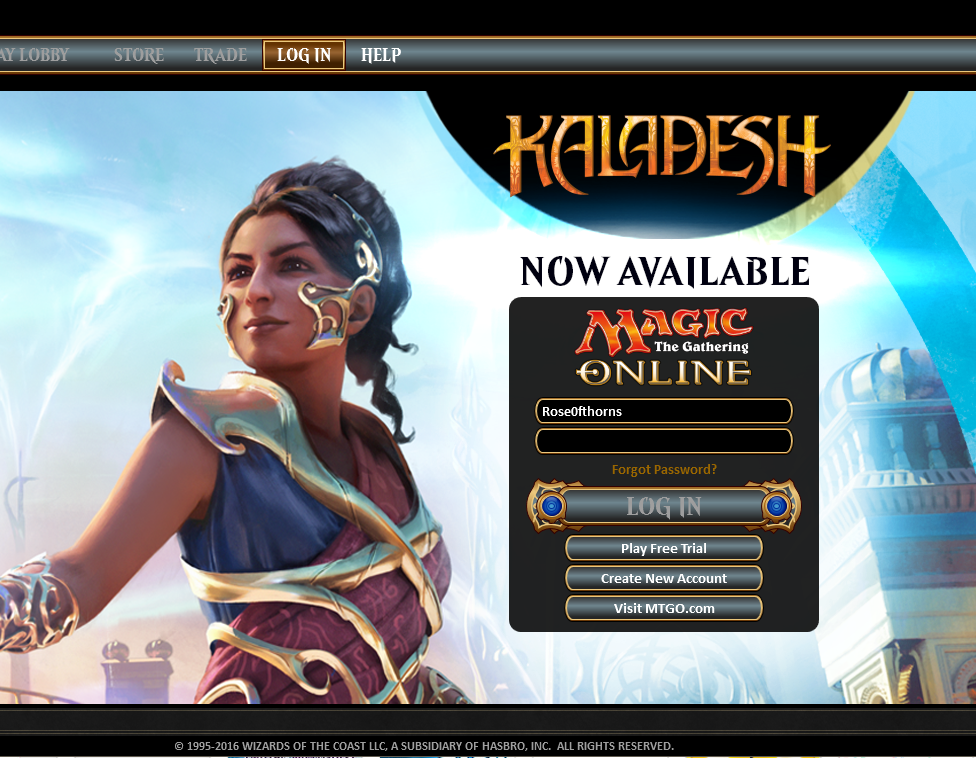
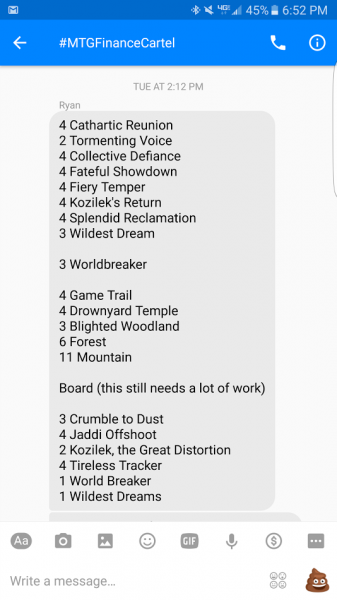
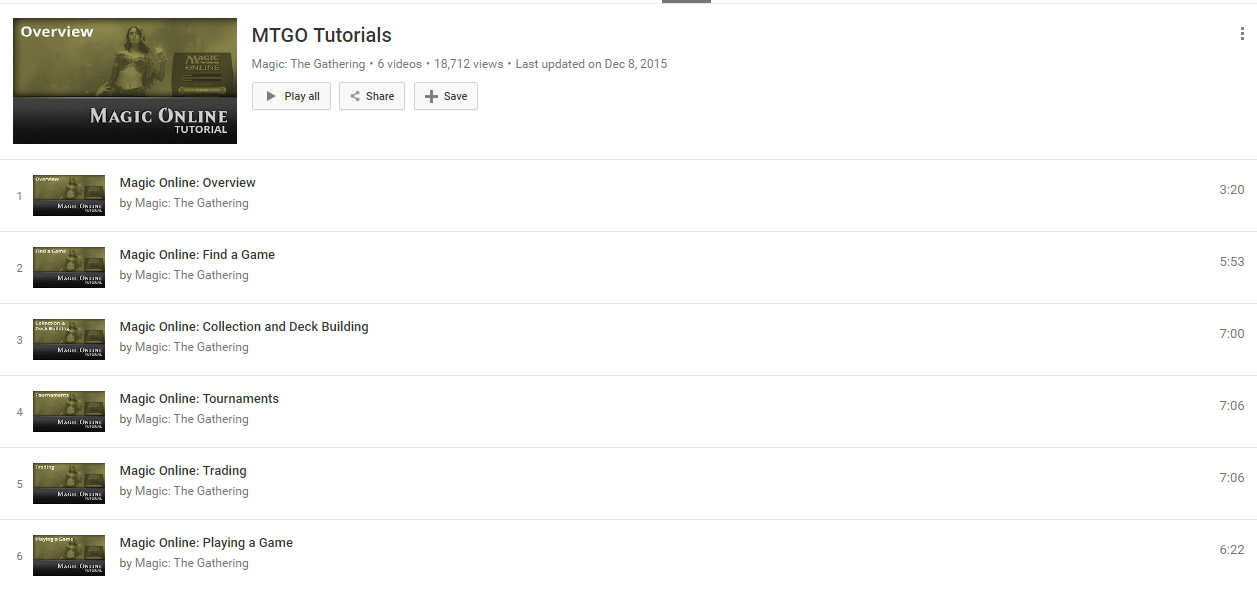
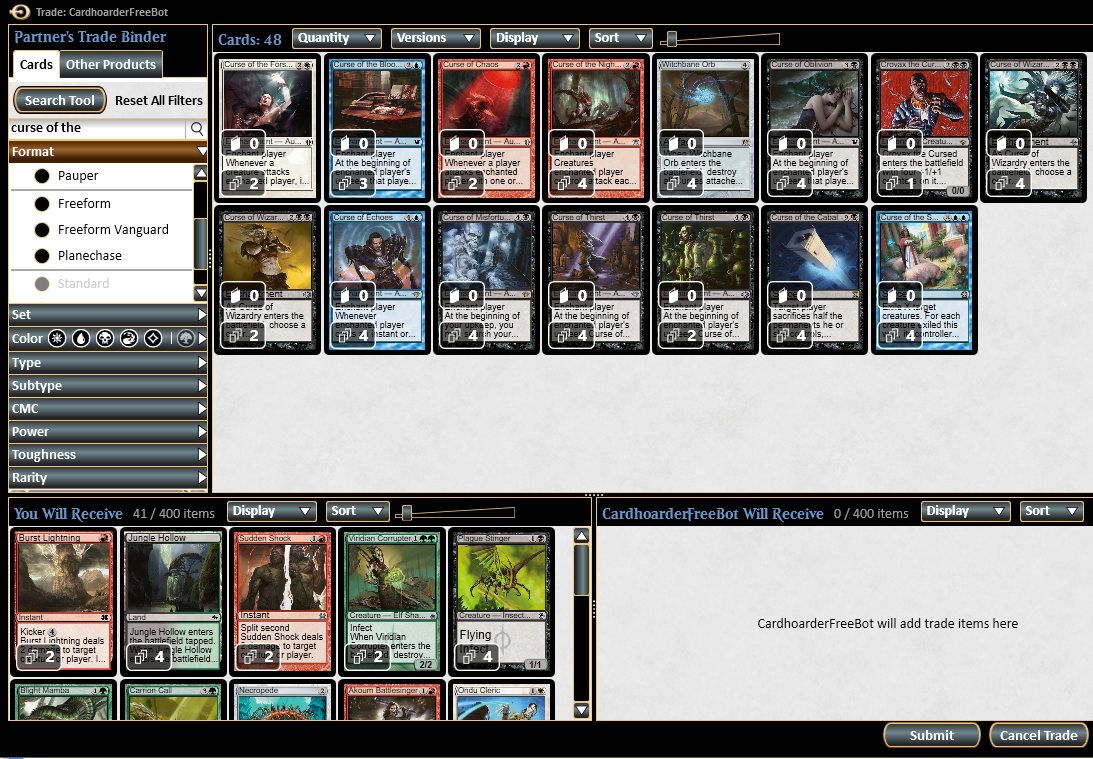
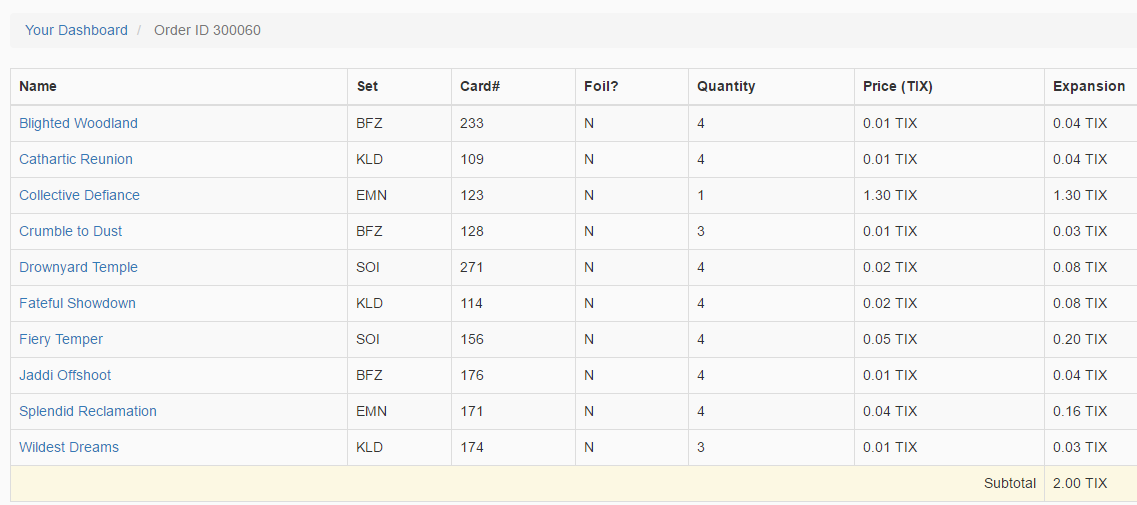



Very much enjoy this as a extra project on top of your normal fare but lets not have MTGO only content each week as you aren’t an MTGO finance expert and that’s ultimately where I get my $12 back on your normal content not this fare. But it is interesting and I want to hear more.
Ouch! Sorry about your Kozilek’s Return purchase. They’re below 12 now.
Yeahh…. Live and learn, I guess! I might just focus on Pauper if I decide to stick around, it’s probably a lot harder to lose money there
I really appreciated this article! Thank you! As a paper Magic player who is un-tech savvy, I have always wondered about transitioning to MTGO. The ease at which you can find games (preferably Legacy) and play at your leisure is quite appealing, especially with the difficulty of getting a local play group together every week.
I must admit that my unfamiliarity with the online platform is a major hurdle for me getting into MTGO. So I appreciate the information you have provided AND the scope of your article. Looking forward to more insight from your experience! Good luck!
Thanks James! I agree, it’s tempting to be able to dive back into Limited or a game of Pauper whenever I feel like it. I just don’t want to get too deep down the rabbit hole and actually start spending money on Magic instead of making it!
Hey Doug,
I like what you are doing with this article. I think it is important for paper players to check out MTGO. MTGO is far from perfect, and doesn’t look as sexy as something like hearthstone, but it does allow people to play more magic, and it is good at that. If you plan to continue this series of articles I would focus more on getting people to experience MTGO, instead of the finance aspect. Like anything, MTGO finance takes time, effort, and practice to get good at, so I recommend defering to the other mtgo finance writers on this site. But I do like that this article encourages people to check out the platform.
Thanks for the kind words, PJ! I don’t really think this is going to be a full-fledged series, partially because of the reasons that Ben Cottee stated earlier. While it’s fun to write and read, this series doesn’t actually help any of you make back those dollars you spend on the subscription fee. My common/uncommon bulk focus does that. I’ll definitely try to visit this subject again every now and then, and probably staple some little MTGO updates to my usual articles, but I’m not really looking to become a MTGO expert
Completely off topic, but good call on Transgress the Mind a while back on Brainstorm!